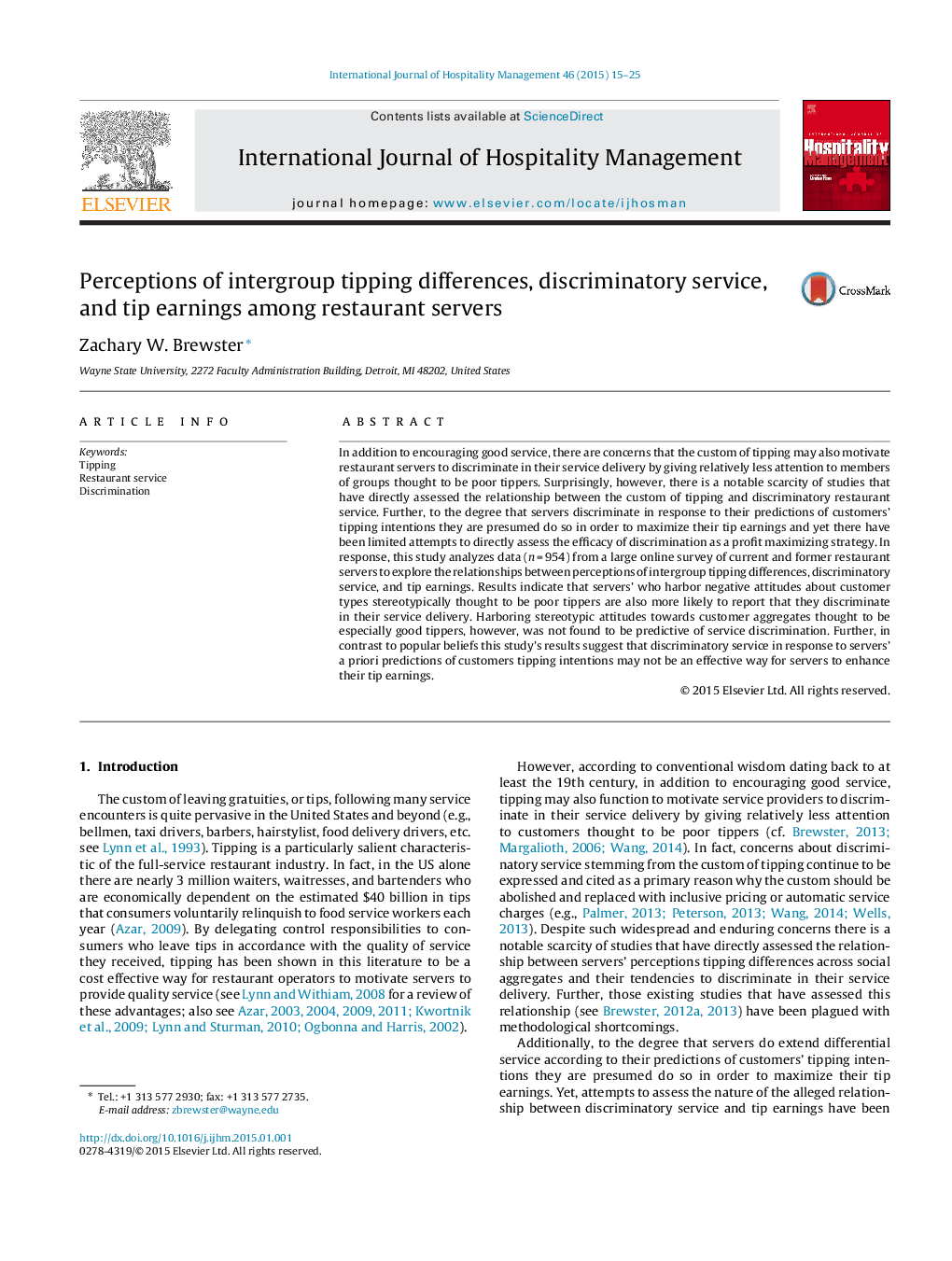| Article ID | Journal | Published Year | Pages | File Type |
|---|---|---|---|---|
| 1009392 | International Journal of Hospitality Management | 2015 | 11 Pages |
In addition to encouraging good service, there are concerns that the custom of tipping may also motivate restaurant servers to discriminate in their service delivery by giving relatively less attention to members of groups thought to be poor tippers. Surprisingly, however, there is a notable scarcity of studies that have directly assessed the relationship between the custom of tipping and discriminatory restaurant service. Further, to the degree that servers discriminate in response to their predictions of customers’ tipping intentions they are presumed do so in order to maximize their tip earnings and yet there have been limited attempts to directly assess the efficacy of discrimination as a profit maximizing strategy. In response, this study analyzes data (n = 954) from a large online survey of current and former restaurant servers to explore the relationships between perceptions of intergroup tipping differences, discriminatory service, and tip earnings. Results indicate that servers’ who harbor negative attitudes about customer types stereotypically thought to be poor tippers are also more likely to report that they discriminate in their service delivery. Harboring stereotypic attitudes towards customer aggregates thought to be especially good tippers, however, was not found to be predictive of service discrimination. Further, in contrast to popular beliefs this study's results suggest that discriminatory service in response to servers’ a priori predictions of customers tipping intentions may not be an effective way for servers to enhance their tip earnings.
